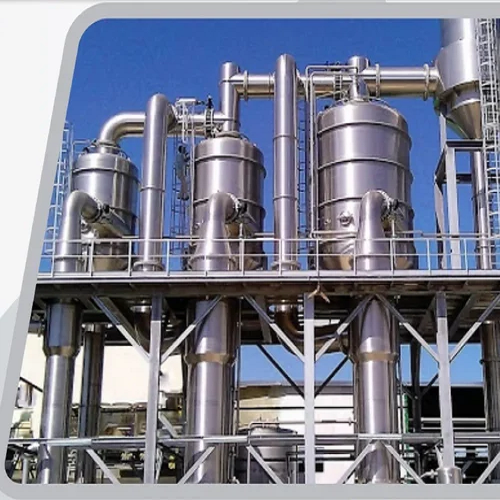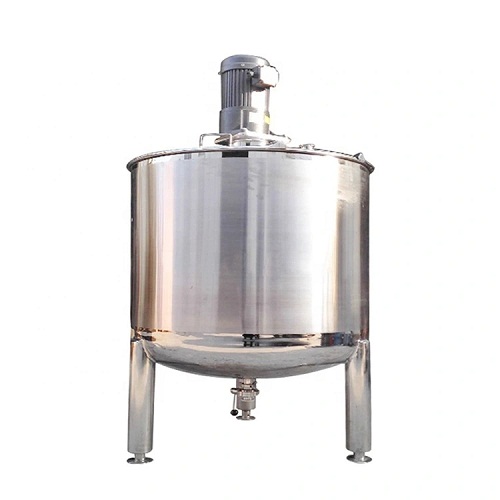
our category
PHARMA & CHEMICAL PLANT EQUIPMENTS (RAIN POWER)
Pharma & Chemical Plant Equipment (RainPower) – Harnessing Renewable Energy for Industrial Applications
Introduction
In the RainPower project, the integration of pharma and chemical plant equipment plays a crucial role in demonstrating how industrial operations can leverage renewable energy sources for sustainable and efficient practices. By utilizing rainwater as a renewable energy resource, the RainPower project seeks to provide a sustainable energy solution to the pharmaceutical and chemical industries, which are traditionally known for their high energy consumption. The equipment used in these plants, such as reactors, pumps, storage tanks, and filtration systems, can be powered or supported by the energy harnessed from rainwater, reducing dependency on traditional power sources while promoting sustainability and environmental responsibility.
Enquire Now
Role of Pharma & Chemical Plant Equipment in the RainPower System
In the context of RainPower, pharma and chemical plant equipment is integrated with rainwater harvesting and energy conversion systems to utilize clean, renewable energy for industrial processes. Rainwater is collected, stored, and filtered for use in various plant operations, including heating, cooling, mixing, and power generation. The role of specific equipment is pivotal in ensuring that the industrial processes run smoothly while benefiting from renewable energy sources.
Key equipment in pharma and chemical plants that can benefit from RainPower include:
-
Reactors and Mixing Tanks: Reactors and mixing tanks are central to pharmaceutical and chemical processes, where raw materials are combined or reacted under controlled conditions. The energy derived from rainwater can help power agitators and heating systems within these tanks, ensuring optimal reaction conditions and consistent product quality. In addition, cooling systems can be powered by rainwater energy to regulate temperatures efficiently.
-
Storage Tanks: In any pharmaceutical or chemical plant, large storage tanks are used to hold raw materials, chemicals, and finished products. Rainwater can be used to power pumps and valves for managing the flow of liquids between storage tanks, providing a sustainable energy source for the entire system.
-
Pumps and Compressors: Pumps are used extensively in pharma and chemical plants to move liquids, gases, and solids through pipes, while compressors are used for pressurizing air or other gases. Both types of equipment require significant energy to operate, and rainwater-powered turbines or electric generators can be integrated into these systems to reduce dependence on grid electricity.
-
Filtration Systems: Filtration is a critical process in the pharmaceutical and chemical industries to ensure the purity of products. Filtration units can be powered using energy harnessed from rainwater to support processes such as liquid filtration, air filtration, or even chemical separation, ensuring that clean, uncontaminated products are produced.
-
Distillation and Evaporation Units: These units are used in chemical and pharmaceutical industries to separate substances or concentrate solutions. Rainwater energy can be used for heating, powering pumps, or driving condensers, making the entire distillation or evaporation process more energy-efficient and environmentally friendly.
-
Cooling Systems: Cooling systems are used extensively in pharmaceutical and chemical processes to manage temperature control during reactions or product storage. Rainwater-powered cooling towers or chillers can help reduce energy consumption and maintain required operating temperatures in an eco-friendly manner.
Applications of Pharma & Chemical Plant Equipment in the RainPower Project
-
Sustainable Manufacturing: The pharma and chemical industries are major consumers of energy, often relying on fossil fuels for their operations. By incorporating RainPower technology into the energy supply chain, manufacturers can significantly reduce their carbon footprint by utilizing rainwater as a clean, renewable energy source for their processes. This includes powering equipment such as mixers, pumps, and reactors with electricity generated from rainwater.
-
Rainwater Harvesting for Water Use in Plants: In addition to energy generation, rainwater can also be used in various water-intensive processes within the pharma and chemical plants. Rainwater harvesting systems can be integrated to provide water for non-potable uses, such as cleaning, cooling, and mixing, further reducing the plant's reliance on external water sources.
-
Hybrid Energy Systems: In large-scale chemical and pharmaceutical operations, a hybrid system can be implemented, where rainwater energy supplements traditional grid power. During periods of heavy rainfall, the energy harvested can meet a significant portion of the plant's energy demand, reducing energy costs and reliance on fossil fuels.
-
Energy Recovery in High-Temperature Processes: Chemical plants often require high temperatures for reactions, distillation, and other processes. By integrating RainPower energy into heat recovery systems, it is possible to capture and store excess heat during rainy periods, which can later be used to power or assist in heating reactors or drying units, reducing energy wastage.
-
Automated Systems and Monitoring: The RainPower system can be integrated with automated controls to monitor energy and water usage across the pharma and chemical plants. By using sensors and smart technology, the system can automatically adjust energy distribution based on real-time rainwater collection and weather patterns, ensuring that equipment is only powered when necessary, and energy is not wasted.
Benefits of Integrating RainPower with Pharma & Chemical Plant Equipment
-
Reduced Operating Costs: By utilizing rainwater-powered energy, pharma and chemical plants can significantly reduce their dependency on external energy sources, thereby lowering energy bills. This is especially important in industries where energy consumption is a substantial portion of operational costs.
-
Environmental Sustainability: Integrating RainPower with industrial equipment leads to a reduction in carbon emissions, supporting the transition to greener manufacturing practices. This aligns with global sustainability goals and reduces the environmental impact of traditional chemical and pharmaceutical processes.
-
Improved Energy Efficiency: Harnessing rainwater for power generation helps plants become more energy-efficient by tapping into an abundant and renewable energy source. Through optimized energy recovery and usage, plants can run more efficiently, ensuring that resources are used wisely.
-
Scalability and Flexibility: The RainPower system can be easily scaled to meet the energy demands of small, medium, or large pharma and chemical plants. Whether the plant is in a region with high rainfall or less frequent rain, the system can be designed to accommodate varying amounts of water and energy demand.
-
Increased Energy Security: By diversifying energy sources, plants can reduce their dependence on grid electricity, providing greater energy security. This is particularly useful in areas prone to power outages or in remote locations where access to reliable electricity may be limited.
Challenges in Integrating RainPower with Pharma & Chemical Equipment
-
Initial Installation Costs: Setting up a RainPower system requires an upfront investment in infrastructure, including rainwater harvesting systems, filtration systems, and energy conversion equipment. While the long-term benefits are significant, the initial cost of installation can be a barrier for some pharmaceutical or chemical plants.
-
Maintenance of Water Filtration Systems: In a pharmaceutical or chemical plant, maintaining the quality of water is crucial. Rainwater harvesting systems require regular cleaning and maintenance to ensure that contaminants do not compromise product quality. Filters and strainers need to be monitored and replaced periodically.
-
Water Availability Variability: The availability of rainwater can vary significantly depending on the region and season. In areas with inconsistent rainfall patterns, the RainPower system may need to be supplemented with other power sources or storage solutions to ensure continuous operation.
-
Integration with Existing Systems: Integrating rainwater-powered systems with pre-existing equipment in chemical and pharmaceutical plants requires careful planning and engineering to ensure compatibility. The retrofitting process can be complex, especially in older plants with legacy systems.
Conclusion
The integration of pharma and chemical plant equipment with the RainPower project offers a revolutionary way for industries to harness renewable energy and water resources. By utilizing rainwater for both energy generation and operational processes, plants can reduce their environmental footprint, lower operating costs, and improve overall efficiency. As the global push for sustainability intensifies, RainPower presents a forward-thinking solution that can support the pharmaceutical and chemical sectors in becoming more eco-friendly and energy-efficient.



